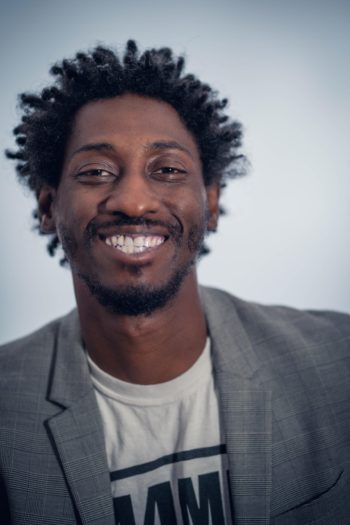The racial disparities in cannabis go as far back as 50 years ago. Black people are four times more likely to face marijuana-related offenses than other ethnic groups, even though both Black and white people consume the substance at similar rates. Recently, many states have moved to legalize cannabis, allowing people to profit off what was once criminalized, making it a now $20.5B industry. Yet, many are denied access due to redlining or being systemically left out, further widening the wealth gap and cutting off opportunities for Black people.

Tahir Johnson, Director of Social Equity and Inclusion at the U.S. Cannabis Council, advocates for Black people in cannabis. Since joining the USCC in April, he has advanced its mission around social justice, ensuring that those impacted by cannabis prohibition be included, thus allowing economic opportunities and restorative justice.
He says, “We have a problem where we are the most prosecuted but don’t have opportunities in the business. When you look at the actual ownership of Black people in the cannabis industry, it’s only 4%. So while the U.S. cannabis industry is growing, there are very few people of color profiting from it.”
Capital, education, and preparedness are barriers Tahir listed when it comes to Black people in cannabis. He says access to capital is the largest. “We don’t have access to banking services. Compared to our white counterparts, Black communities have only 1/10th of the wealth. When you match that with a system where you can’t get a bank loan to participate in this industry, then you have a situation where you don’t have access”, he said.
Some other types of capital include private equity, venture capital, and personal wealth. Black people receive far less funding. Many do not have access to financing within their networks, leaving them left out or in deals that aren’t helpful to their communities.
One of the solutions to this problem is the passing of the SAFE (Secure and Fair Enforcement) Banking Act. Included in the HEROES Act COVID-19 relief bill and passed by the House, SAFE will allow access to banking, helping alleviate some of the financial barriers in cannabis.
Tahir also stresses the importance of understanding the medical aspects. “We often think about cannabis recreationally. But our bodies have an endocannabinoid system in cannabis to relieve many different things. So we have to rethink how we view cannabis in general.”
Another educational aspect of cannabis is understanding the various business opportunities. Along with dispensaries, opportunities exist on the ancillary side of the industry. Tahir said, “People can use areas they have expertise in to be able to transition into industry. As we’re building this industry, we need different support services. Whether you’re a marketing or medical professional, an attorney, or in technology or construction, you can participate in the cannabis industry.” Adding, “Those can also be opportunities for generational wealth. Especially because with those ancillary roles, you’re not faced with the regulatory scrutiny and tax burden that cannabis companies have.”
Tahir feels that having diverse leaders helps to build diverse companies. Outside of ownership, he says existing cannabis companies need leaders of color. He believes one of the areas of opportunity is through students attending HBCUs.
“We have an opportunity to educate our HBCU students on how they can enter the cannabis industry. Having programs to be able to do that is critical. One of the things that I’m working on is implementing structures within the cannabis industry. This is, so we have opportunities for entrepreneurship and leadership within these companies. Hopefully, that will also spur future diversity.”
As for the future of Black people in cannabis, Tahir sees massive amounts of growth over time, with conversations happening around social equity and inclusion being a part of legalization.
He said, “In Illinois, one of the goals of the dispensary program is to have the inclusion of more people of color through the application process. It is the same with New York, New Jersey, and Connecticut. However, what’s important is ensuring that the execution matches up with the intent of what these laws are. So I would say that I’m hopeful for what the future will be for people of color in the industry. But I think we still have a long way to go.”
Contributing Writer Racquel Coral is a national lifestyle writer and journalist based in Chicago, Illinois. Find her on social media @withloveracquel.